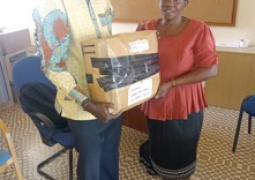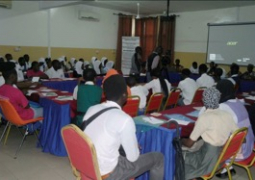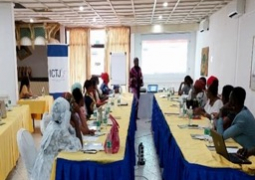
The orientation, held at Halahin Eco Lodge in Kartong, seeks to expose lawmakers to some of the threats and burdens those diseases continue to pose to the country’s overall health system. According to officials, NCDs, mental health and injuries are the leading causes of death and disability in The Gambia and the session would henceforth equip lawmakers on how to make informed decision, thereby prioritising NCDs policies that find their way to parliament.
Welcoming the gathering, Micheal Manga Mendy, director of Health Promotion and Education at the Ministry of Health, described NCDs as a big threat to the country’s drive to achieve it 2030 agenda and Sustainable Development Goals.
To that end, he said it was important for all to be aware of the situation of NCDs in the country, acknowledging that the only way to curb it is by knowing what the risk factors are and what ways to take to curb it.
“Coming here today and discussing the issue would definitely add value to our efforts in bringing down the prevalence of the disease.”
Mendy expressed optimism that with the high turnout of lawmakers they are hopeful the lawmakers will further amplify their ongoing efforts to reduce and mitigate the disease in the country.
Momodou Gassama, communications expert at the World Health Organisation thanked the Ministry for organising the forum and lawmakers for their turnout.
He said that the UN agency’s task is to supplement and strengthen the existing national health systems.
Gassama reminded participants about the devastating impact of NCDs and that it is something that affects all directly or indirectly.
“We are seeing and feeling the impact of NCDs. I am really impressed with the turnout and coming here shows the level of your commitment towards this issue,” he told lawmakers.
Billay G.Tunkara, National Assembly Member for Kantora Constituency, who also doubles as majority leader described the orientation as ‘timely and sacrosanct’ in nation building.
The majority leader described NCDs as a challenge in the country, acknowledging that it is important for people to live a healthier life.
“We are not here just as policy-makers to resource the Ministry but as advocates in our respective communities and to transcend the message down to them that these are NCDs and they are dangers to our health.”
To that end, he thanked the Ministry and stakeholders for exposing them to some critical issues relating to NCDs in the country.
Declaring the event open, Dr. Momodou Nyiassi, deputy director of Health Services at the Ministry of Health, said it is important for people to always recollect the fact that some years ago, people never worried or mentioned NCDs in the country.
“All we focused on in terms of health intervention was communicable disease. But today, NCDs have overtaken the communicable diseases in the country.”
Dr. Nyassi alluded that NCDs are very expensive and sometimes difficult to manage especially if caught unawares, pointing out that the diseases have taken a high toll in the country’s health budget.
Read Other Articles In National News





